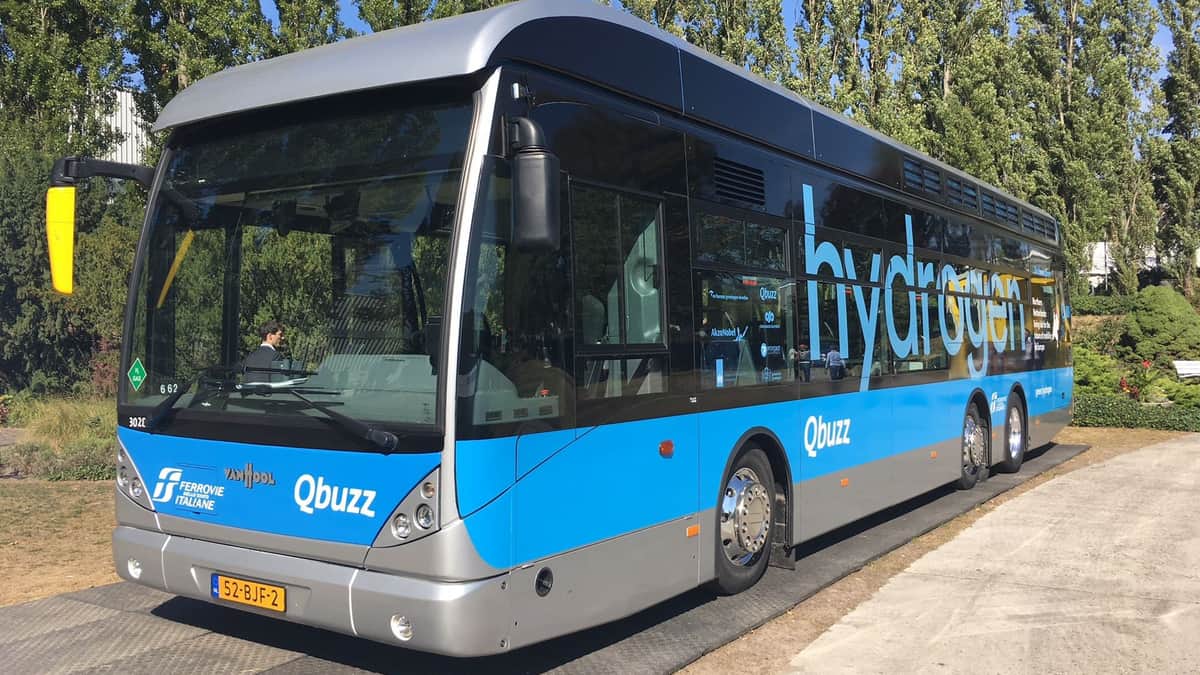
If fuel cell suppliers and other industry players are worried about China’s announcement that the government is ending subsidies for hydrogen vehicles next year, they are doing a good job of not showing it.
“The announcement is old news,” said Nicolas Pocard, director of marketing for Ballard Power Systems , a Burnaby, British Columbia manufacturer of fuel cell systems.
In an email to FreightWaves, Pocard noted that China’s existing five-year New Energy Vehicle incentive plan for fuel cell vehicle subsidies was due to expire in 2020.
He said Ballard is expecting the Chinese government to “issue a new scheme in the coming months” to support the country’s ambitious goal of having one million hydrogen fuel-cell vehicles on the road by 2030.
Relying on subsidies
The Chinese Ministry of Finance confirmed in late September it would cut off incentives for hydrogen fuel cell vehicles in 2020, the China Daily reported last week. The confirmation took the form of an open letter to SAIC Motor chairman and National People’s Congress deputy Chen Hong.
The missive stated that “some carmakers have become over-reliant on subsidies and thus find it difficult to compete in the global markets,” according to the Daily. “Despite the financial support, China’s fuel-cell industry has not made breakthroughs and has not seen rapid development.”
Motives unclear
That explanation not withstanding, it’s not entirely clear why China is pulling back so hard on alternative fuel vehicle subsidies, said Sam Abuelsamid, an analyst leading Navigant Research’s Mobility division.
In 2010 Chinese officials put in place substantial incentives for battery-electric vehicles. Five years later these subsidies were scaled back in favor of new incentives for fuel-cell electric vehicles.
he latest decision means China is ending subsidies for all electric vehicles, hydrogen-electric included.
Less carrot — more stick
Highlighting the importance of those incentives, battery-electric vehicle sales in China declined for the first time this summer, dropping 16% in August compared to the previous year, according to the China Association of Automobile Manufacturers. Auto sales in all categories are showing declines, driven by the trade war and a weakening economy overall.
Despite the headwinds, Abuelsamid echoed Pocard, saying he didn’t see a big impact to North American manufacturers eyeing the Chinese market and that a new set of favorable hydrogen vehicle policies was likely coming down the pike. China has “multiple levers” to encourage the alternative fuel vehicles, he said. “Subsidies are the carrot. But there is also a stick.”
For example, China restricts licenses for vehicles with internal combustion engines, while allowing unlimited registrations for clean fuel vehicles. And so far there is no indication the country will pull back on building the fueling infrastructure that will enable the mainstreaming of hydrogen-powered cars and trucks.
Commercial vehicle applications
Another factor shoring up the market is that fuel cell vehicles have shorter refueling times and longer driving ranges than battery-electric vehicles, making them especially well-suited to the heavy-duty truck market. The fuel cell industry has faced challenges “for a long time,” Abuelsamid added, and other policies will likely compensate for China moving away from direct cash subsidies.
That’s good news for companies like Ballard Power, a leading fuel cell developer whose fortunes have nonetheless wobbled along with the industry’s fits and starts.
In November 2018 Ballard announced a joint venture with the Chinese diesel manufacturer Weichai. The partnership was “supported by the Chinese subsidy regime,” Ballard CFO Tony Guglielmin told FreightWaves in July.
In May, Ballard signed a $44 million deal helping deliver approximately one-third of the 2,000 fuel cell electric vehicles Weichai committed to deploy in China by 2021.
That rollout is on schedule, Pocard said.
China’s subsidies for fuel-cell vehicles ranged from 200,000 yuan (US$29,012) per passenger vehicle to 500,000 yuan (US$72,531) for a heavy-duty commercial vehicle.